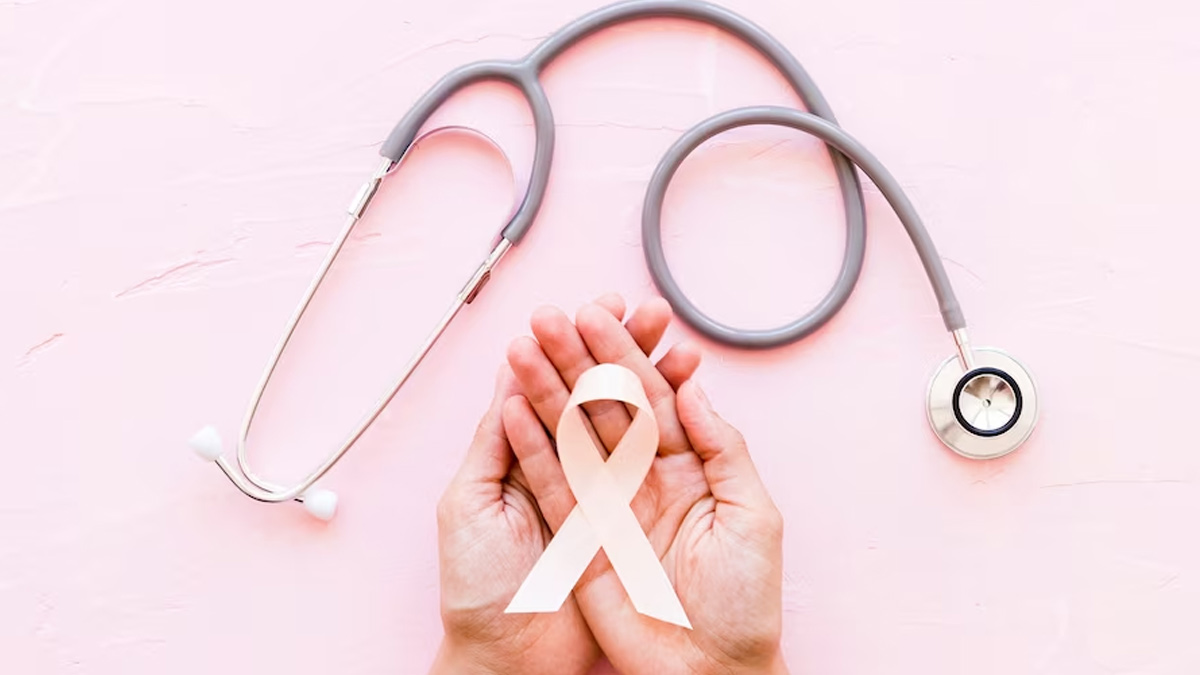
There are more than 30 different bacteria, viruses and parasites that spread through sexual contact, of which eight pathogens are associated with the greatest incidence of STIs, according to the World Health Organization (WHO). While four of them namely syphilis, gonorrhoea, chlamydia and trichomoniasis are curable, the other four are incurable in nature. These include hepatitis B, herpes simplex virus (HSV), HIV and Human Papillomavirus (HPV).
Table of Content:-
HPV in particular is extremely concerning since a large majority of cervical cancer that is more than 95% is caused by the virus. In this article, we will not only understand the link between HPV and cancer, but Dr Mridula Raghav, MS OBG, FRM ICOG, Senior Resident-Department of OBG, Kasturba Medical College, MAHE, Manipal, will list down some of the common ways to prevent it.
Also Read: HPV Vaccine: Who Needs It And How Does It Work? Clarifies Expert
What Is HPV And How Is It Linked To Cancer?

HPV comprises a group of 200 known viruses that has the tendency to invade genitals, upper respiratory tract, and skin, says Dr Raghav.
According to the WHO these viruses do not cause concerns in most people, but infection with some high-risk types is common and can cause genital warts or cancer.
In fact, in 90% of the people, the body is successful in controlling the infection by itself, however, an HPV virus can cause about 5% of all cancers worldwide, with an estimated 6,25,600 women and 69,400 men getting an HPV-related cancer annually, the WHO reports.
Cervical cancer is the fourth most common cancer among women globally. The global health body notes that nearly 50% of high grade cervical pre-cancers are caused by two HPV types 16 and 18. Unfortunately, the majority of sexually active women and men will get infected at some point in their lives, and some may experience recurrent infections.
In most of the HPV cases, the virus usually clears up on its own without treatment, however, high risk subtypes cause certain changes in the cervical cells, which act as a basis of screening for cervical cancer by the PAP smear test, according to the doctor.
He notes further that it takes almost 10-20 years for HPV infected cells to become a tumour.
HPV Transmission

Since HPV is a Sexually Transmitted Infection (STI), Dr Raghav says it can spread through any intimate skin-to-skin contact, including vaginal–penile sex, penile–anal sex, penile–oral sex, vaginal–oral sex, and use of sex toys or other objects.
“It can affect anyone irrespective of gender,sex or sexual orientation.Even people who are not sexually active can get HPV infection,” he says, adding, “Most people with the infection are asymptomatic and infection usually will disappear in about 6-24 months.”
Also Read: Can You Still Get An HPV Vaccine If You're Sexually Active?
Preventive Measures
To prevent an HPV infection, it is important to first assess your risk of the virus. Common risk factors include:
- Multiple childbirths
- Young age of marriage
- Cigarette smoking
- Prolonged use of contraceptive pills
- Patients with HIV or those taking medicines for immune suppression
The next step is to undergo regular tests to detect HPV virus in the body and signs of cancer.
Dr Raghav says, “In India, after the age of 30 years women should get themselves screened for cervical cancer by pap smear test every three years till the age of 65 years.

“Pap smear tests detect any changes in the cervical cells caused by HPV infection. It is an OPD based procedure and doesn’t hurt or cause pain. Your gynaecologist will do a speculum examination and take a smear using a brush from your cervix. Reports are usually ready in a week's time. Along with Pap smear HPV DNA testing for high risk subtypes can also be performed,” he advises.
In addition, while practising safe sex, using condoms and dental dams, can cut down your risk of HPV infection, vaccines can be taken by both boys and girls as early as 9 years of age.
Gardasil 9 can be taken up to the age of 45 years.
A Final Word
The best way to prevent an HPV infection is by getting vaccinated against it at an early age. Dr Raghav says, “Although vaccines don't prevent an existing infection, if you have been sexually active, you still can take the vaccine to protect against unexposed subtypes.”
“People belonging to the LGBTQIA community are also recommended to get vaccinated against the virus. Cervical cancer is a preventable cancer and each and every person with a cervix should get tested and vaccinated,” the doctor concludes.
Also watch this video
How we keep this article up to date:
We work with experts and keep a close eye on the latest in health and wellness. Whenever there is a new research or helpful information, we update our articles with accurate and useful advice.
Current Version